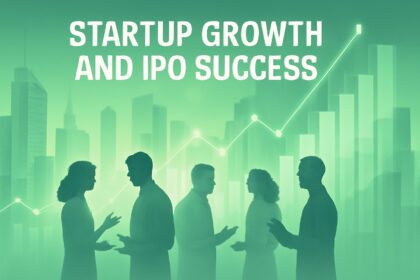Pangyo Techno Valley: South Korea’s Premier Innovation Hub
Just a short subway ride south of Seoul lies Pangyo Techno Valley (PTV), a sprawling 661,000-square-meter tech complex in Seongnam. Established in 2011, it has grown into one of South Korea’s most significant centers for innovation, hosting over 1,800 startups, research institutes, and global technology firms. The district is home to major players such as Naver, often dubbed Korea’s Google, and Kakao, the country’s dominant super-app. Gaming giants Nexon and NCSoft, alongside industrial leaders like HD Hyundai and cybersecurity firm AhnLab, further anchor the ecosystem. Samsung Electronics, semiconductor leader SK Hynix, and Hyundai’s autonomous vehicle unit 42dot also maintain substantial operations here.
The Silicon Valley Label: Aspirations vs. Reality
Despite its density of tech companies, industry experts caution against equating Pangyo with Silicon Valley. Hyoungchul Choi, CEO of Portologics, notes, “Pangyo is Korea’s most concentrated hub for software, gaming, platforms, and AI, but the Silicon Valley nickname is convenient rather than accurate.” He points to Silicon Valley’s decades-long history of international capital flow, a risk-taking culture, and global talent attraction—areas where Pangyo still lags. According to official data, small and mid-size businesses make up approximately 91.5% of Pangyo’s companies, with large tech firms only representing 3.6%, and public or government organizations 4.9%. This composition highlights the district’s startup-heavy landscape but also its relative scarcity of dominant global players.
Talent and Capital Shift Toward Seoul’s Gangnam
Janice Sa, principal at Z Venture Capital, observes a waning influence of Pangyo compared to a decade ago. While the presence of giants like Kakao and Naver justifies its reputation, many startups now prefer Seoul’s Gangnam district for proximity to talent and investors. “Young developers and engineers gravitate toward Gangnam, and most venture capital firms are clustered along Teheran Street, making it more convenient for hiring and fundraising,” Sa explains. Although Pangyo is close to Seoul, it remains in Gyeonggi Province, which affects access to government support programs and startup infrastructure concentrated within Seoul’s jurisdiction.
Ecosystem Culture: Collaboration vs. Diversity
An insider from a Pangyo-based firm highlights the collaborative culture fostered by geographic proximity among tech companies. “Working here means collaboration comes easier since everyone is nearby,” they said. However, Seoul offers a more diverse environment, with districts like Yeouido serving as financial hubs and Gangnam attracting a wider variety of startups.
Challenges in Achieving Global Competitiveness
The critical question remains: can Korean startups scale globally? Both government and private sectors push for international expansion as the domestic market saturates, yet breakthrough global successes remain limited.
“American startups succeed and fail faster, which fuels experimentation and talent movement,” said a Kakao Ventures investor. “Speed is a startup’s greatest strength, and we encourage founders to view failure as opportunity.”
This investor also identifies storytelling as a challenge for Korean founders, who excel in strategy and numbers but often struggle to articulate a compelling personal narrative—a critical factor in standing out globally.
Optimism Amid Challenges and Future Directions
Choi remains optimistic, highlighting the balance Korean startups strike between ambition and disciplined growth. Unlike Silicon Valley’s rapid pivots, Korean founders build strong domestic proof points before international expansion, resulting in dependable engineering though less disruptive innovation. Government investments are diversifying Pangyo’s focus beyond gaming and platforms into AI, biotech, and deep tech, with new startup campuses and scaling programs underway. However, the ultimate test lies in generating global unicorns, cross-border exits, and attracting international talent. Choi points to three main barriers: the small domestic market size, limited global investor connections, and language or regulatory obstacles. He adds a fourth—effective storytelling to the world—as pivotal for evolving from a regional hub to a global innovation center.
FinOracleAI — Market View
Pangyo Techno Valley represents South Korea’s concentrated effort to build a high-tech ecosystem rivaling global innovation centers. However, structural challenges, including talent migration to Seoul, limited global capital inflows, and cultural differences in startup dynamics, constrain its international impact.
- Opportunities: Expansion into AI, biotech, and deep tech sectors backed by government programs; leveraging strong domestic tech giants for mentorship and stability; potential to improve global storytelling and branding.
- Risks: Talent and capital concentration in Seoul’s Gangnam district weakening Pangyo’s ecosystem; regulatory and language barriers limiting global market access; slower startup pivot speeds impacting competitiveness.
Impact: While Pangyo remains a vital national tech hub, its ability to transform into a global innovation powerhouse depends on addressing talent retention, enhancing international investor relations, and fostering a culture of rapid experimentation and compelling narrative building.













